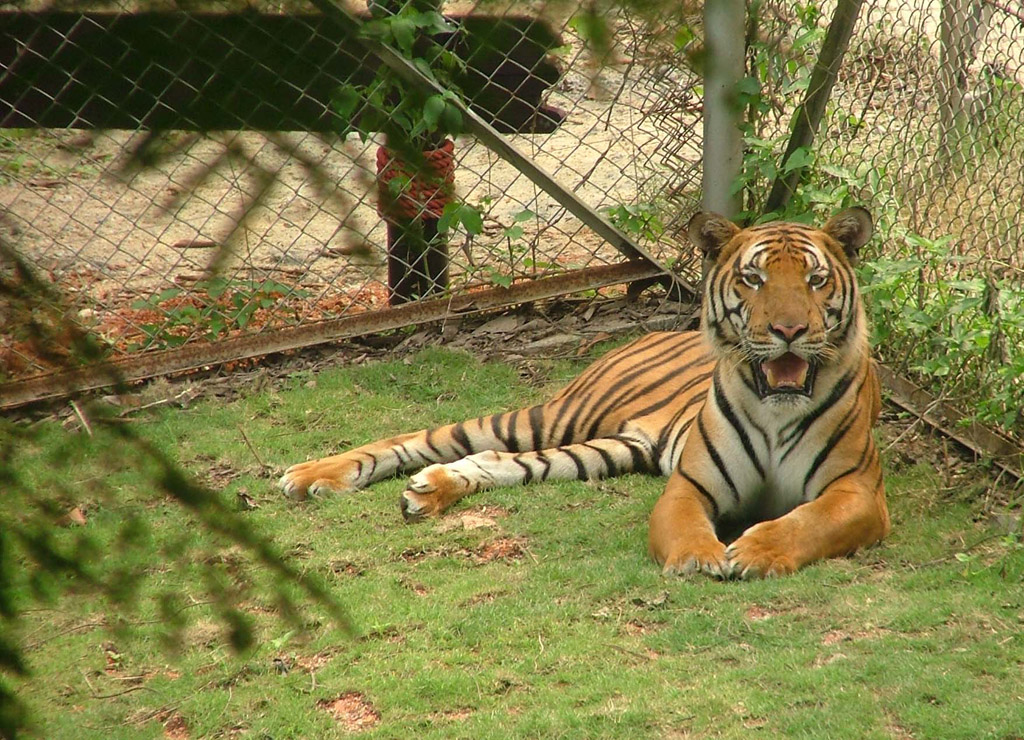Flu curbs mean more beef and mutton at the zoo
 0 Comment(s)
0 Comment(s) Print
Print E-mail Shanghai Daily, April 12, 2013
E-mail Shanghai Daily, April 12, 2013
Shanghai Zoo and Shanghai Wildlife Park said yesterday they were feeding animals beef and mutton instead of chicken due to the current bird flu outbreak, but had no plans to follow Suzhou Zoo's example and give a TCM remedy to birds.
 |
|
A tiger at Shanghai Zoo [file photo] |
The zoo in Suzhou has fed banlangen, a traditional Chinese remedy for the human cold, to its hundreds of birds, including peacocks, flamingos and swans the Modern Express newspaper reported yesterday.
Bai Jiaming, a Shanghai Zoo official, said there was no proof banlangen had an effect on birds.
The Shanghai zoo said chicken previously accounted for just 1 percent of its animals' intake but now beef, mutton and rabbit would take its place. The main consumers of chicken at the zoo in the past were its pythons.
The zoo's bird enclosures have been closed, and areas where the birds live are being sterilized twice a week.
So far, the zoo's birds, which have been vaccinated against other strains of bird flu, have tested negative for the new strain. The zoo said it had canceled an event due to take place on Saturday to mark the start of its annual bird spotting event.
Meanwhile, the Shanghai Wildlife Park has suspended all poultry-related activities, including the practice of selling live chickens to visitors to feed to lions and tigers.
The park stopped feeding animals with live chicken on April 6, and has stepped up disinfection and monitoring of wild birds flying in from outside, said Ni Li, a park official.
The flu outbreak has devastated poultry sales in Shanghai and neighboring provinces.
Shanghai has banned the trade in live poultry while similar measures have been taken in the neighboring cities of Nanjing and Suzhou.
Nanjing has banned local residents from raising chicken, ducks or pigeons at home.
Some live poultry markets in Zhejiang Province were ordered to close while others shut down when demand plummeted.
Sales have suffered even in regions with no bird flu cases. In the northern city of Shijiazhuang, chicken sales fell more than 50 percent at the city's largest agricultural market, China News Service reported.
In Fujian Province, a duck breeder said he had no choice but to kill more than 10,000 ducklings every day because no one had ordered birds for many days and it was too expensive to let them to survive and grow.






Go to Forum >>0 Comment(s)